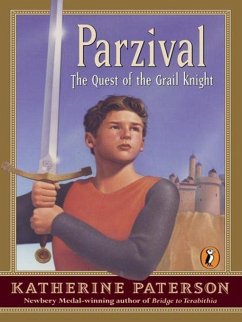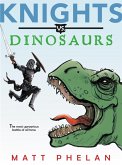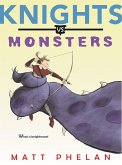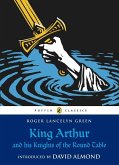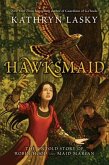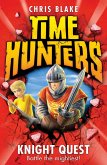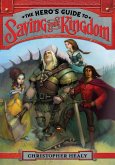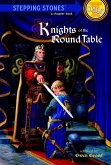5,99 €
5,99 €
inkl. MwSt.
Sofort per Download lieferbar

3 °P sammeln
5,99 €
Als Download kaufen

5,99 €
inkl. MwSt.
Sofort per Download lieferbar

3 °P sammeln
Jetzt verschenken
Alle Infos zum eBook verschenken
5,99 €
inkl. MwSt.
Sofort per Download lieferbar
Alle Infos zum eBook verschenken

3 °P sammeln
- Format: ePub
- Merkliste
- Auf die Merkliste
- Bewerten Bewerten
- Teilen
- Produkt teilen
- Produkterinnerung
- Produkterinnerung

Bitte loggen Sie sich zunächst in Ihr Kundenkonto ein oder registrieren Sie sich bei
bücher.de, um das eBook-Abo tolino select nutzen zu können.
Hier können Sie sich einloggen
Hier können Sie sich einloggen
Sie sind bereits eingeloggt. Klicken Sie auf 2. tolino select Abo, um fortzufahren.

Bitte loggen Sie sich zunächst in Ihr Kundenkonto ein oder registrieren Sie sich bei bücher.de, um das eBook-Abo tolino select nutzen zu können.
Acclaimed storyteller and Newbery medalist, National Book Awardwinner, and Laura Ingalls Wilder award recipient Katherine Paterson breathes new life into this classic tale of action, adventure, and romance. Raised in the wilderness, Parzival knows nothing of his destiny as the Grail Knight--the one who is fated to seek the sacred vessel of hope and eternal life. To succeed in his quest, Parzival must struggle against countless obstacles. His triumphant story is one that will move readers to joy and despair, laughter and tears.
- Geräte: eReader
- mit Kopierschutz
- eBook Hilfe
- Größe: 0.16MB
- FamilySharing(5)
Andere Kunden interessierten sich auch für
![Knights vs. Dinosaurs (eBook, ePUB) Knights vs. Dinosaurs (eBook, ePUB)]() Matt PhelanKnights vs. Dinosaurs (eBook, ePUB)7,99 €
Matt PhelanKnights vs. Dinosaurs (eBook, ePUB)7,99 €![Knights vs. Monsters (eBook, ePUB) Knights vs. Monsters (eBook, ePUB)]() Matt PhelanKnights vs. Monsters (eBook, ePUB)4,49 €
Matt PhelanKnights vs. Monsters (eBook, ePUB)4,49 €![King Arthur and His Knights of the Round Table (eBook, ePUB) King Arthur and His Knights of the Round Table (eBook, ePUB)]() Roger Lancelyn GreenKing Arthur and His Knights of the Round Table (eBook, ePUB)7,99 €
Roger Lancelyn GreenKing Arthur and His Knights of the Round Table (eBook, ePUB)7,99 €![Hawksmaid (eBook, ePUB) Hawksmaid (eBook, ePUB)]() Kathryn LaskyHawksmaid (eBook, ePUB)3,99 €
Kathryn LaskyHawksmaid (eBook, ePUB)3,99 €![Knight Quest (eBook, ePUB) Knight Quest (eBook, ePUB)]() Chris BlakeKnight Quest (eBook, ePUB)4,99 €
Chris BlakeKnight Quest (eBook, ePUB)4,99 €![The Hero's Guide to Saving Your Kingdom (eBook, ePUB) The Hero's Guide to Saving Your Kingdom (eBook, ePUB)]() Christopher HealyThe Hero's Guide to Saving Your Kingdom (eBook, ePUB)4,49 €
Christopher HealyThe Hero's Guide to Saving Your Kingdom (eBook, ePUB)4,49 €![Knights of the Round Table (eBook, ePUB) Knights of the Round Table (eBook, ePUB)]() Gwen GrossKnights of the Round Table (eBook, ePUB)4,99 €
Gwen GrossKnights of the Round Table (eBook, ePUB)4,99 €-
-
-
Acclaimed storyteller and Newbery medalist, National Book Awardwinner, and Laura Ingalls Wilder award recipient Katherine Paterson breathes new life into this classic tale of action, adventure, and romance. Raised in the wilderness, Parzival knows nothing of his destiny as the Grail Knight--the one who is fated to seek the sacred vessel of hope and eternal life. To succeed in his quest, Parzival must struggle against countless obstacles. His triumphant story is one that will move readers to joy and despair, laughter and tears.
Dieser Download kann aus rechtlichen Gründen nur mit Rechnungsadresse in A, B, BG, CY, CZ, D, DK, EW, E, FIN, F, GR, HR, H, IRL, I, LT, L, LR, M, NL, PL, P, R, S, SLO, SK ausgeliefert werden.
Produktdetails
- Produktdetails
- Verlag: Penguin Young Readers Group
- Seitenzahl: 144
- Altersempfehlung: ab 7 Jahre
- Erscheinungstermin: 3. April 2000
- Englisch
- ISBN-13: 9781101142530
- Artikelnr.: 44959458
- Verlag: Penguin Young Readers Group
- Seitenzahl: 144
- Altersempfehlung: ab 7 Jahre
- Erscheinungstermin: 3. April 2000
- Englisch
- ISBN-13: 9781101142530
- Artikelnr.: 44959458
- Herstellerkennzeichnung Die Herstellerinformationen sind derzeit nicht verfügbar.
People are always asking me questions I don't have answers for. One is, "When did you first know that you wanted to become a writer?" The fact is that I never wanted to be a writer, at least not when I was a child, or even a young woman. Today I want very much to be a writer. But when I was ten, I wanted to be either a movie star or a missionary. When I was twenty, I wanted to get married and have lots of children.
Another question I can't answer is, "When did you begin writing?" I can't remember. I know I began reading when I was four or five, because I couldn't stand not being able to. I must have tried writing soon afterward. Fortunately, very few samples of my early writing survived the eighteen moves I made before I was eighteen years old. I say fortunately because the samples that did manage to survive are terrible, with the single exception of a rather nice letter I wrote to my father when I was seven. We were living in Shanghai, and my father was working in our old home territory, which at the time was across various battle lines. I missed him very much, and in telling him so, I managed a piece of writing I am not ashamed of to this day.
A lot has happened to me since I wrote that letter. The following year, we had to refugee a second time because war between Japan and the United States seemed inevitable. During World War II, we lived in Virginia and North Carolina, and when our family's return to China was indefinitely postponed, we moved to various towns in North Carolina, Virginia, and West Virginia, before my parents settled in Winchester, Virginia.
By that time, I was ready to begin college. I spent four years at King College in Bristol Tennessee, doing what I loved best -- reading English and American literature -- and avoiding math whenever possible.
My dream of becoming a movie star never came true, but I did a lot of acting all through school, and the first writing for which I got any applause consisted of plays I wrote for my sixth-grade friends to act out.
On the way to becoming a missionary, I spent a year teaching in a rural school in northern Virginia, where almost all my children were like Jesse Aarons. I'll never forget that wonderful class. A teacher I once met at a meeting in Virginia told me that when she read Bridge to Terabithia to her class, one of the girls told her that her mother had been in that Lovettsville sixth grade. I am very happy that those children, now grown up with children of their own, know about the book. I hope they can tell by reading it how much they meant to me.
After Lovettsville, I spent two years in graduate school in Richmond, Virginia, studying Bible and Christian education; then I went to Japan. My childhood dream was, of course,to be a missionary to China and eat Chinese food three times a day. But China was closed to Americans in 1957, and a Japanese friend urged me to go to Japan instead. I remembered the Japanese as the enemy. They were the ones who dropped the bombs and then occupied the towns where I had lived as a child. I was afraid of the Japanese, and so I hated them. But my friend persuaded me to put aside those childish feelings and give myself a chance to view the Japanese in a new way.
If you've read my early books, you must know that I came to love Japan and feel very much at home there. I went to language school, and lived and worked in that country for four years. I had every intention of spending the rest of my life among the Japanese. But when I returned to the States for a year of study in New York, I met a young Presbyterian pastor who changed the direction of my life once again. We were married in 1962.
I suppose my life as a writer really began in 1964. The Presbyterian church asked me to write some curriculum materials for fifth- and sixth-graders. Since the church had given me a scholarship to study and I had married instead of going back to work in Japan, I felt I owed them something for their money. So I began writing. By the time the books were published I had moved three more times, acquired three children, and was hooked on writing.
But I decided I didn't want to write nonfiction. I wanted to write what I love to read -- fiction. I didn't know that wanting to write fiction and being able to write fiction were two quite separate things. In the cracks of time between feedings, diapering, cooking, reading aloud, walking to the park, getting still another baby, and carpooling to nursery school, I wrote and wrote, and published practically nothing.
A friend in the church in Maryland, where we were living, felt sorry for me. There I was, four babies in just over four years (two adopted and two home-made), trying to write but with no success. So she decided to take me to an adult education course in creative writing one night a week. Eventually the novel that I wrote in the course was published, and I had become a writer. Do I like being a writer? I love it. I often tell my husband that it's the only job I could hold now. I'm spoiled. I work at home in my own study, wearing whatever I please. I never have to call in sick. From time to time, I get to go to schools and other places where I meet delightful people who love books as much as I do.
But there are days when I wonder how on earth I got involved in this madness. Why, oh why, did I ever think I had anything to say that was worth putting down on paper? And there are those days when I have finished a book and can't for the life of me believe I'll ever have the wit or will to write another.
Eventually a character or characters will walk into my imagination and begin to take over my life. I'll spend the next couple of years getting to know them and telling their story. Then the joy of writing far outweighs the struggle, and I know beyond any doubt that I am the most fortunate person in the world to have been given such work to do.
copyright © 2000 by Penguin Putnam Books for Young Readers. All rights reserved.
Another question I can't answer is, "When did you begin writing?" I can't remember. I know I began reading when I was four or five, because I couldn't stand not being able to. I must have tried writing soon afterward. Fortunately, very few samples of my early writing survived the eighteen moves I made before I was eighteen years old. I say fortunately because the samples that did manage to survive are terrible, with the single exception of a rather nice letter I wrote to my father when I was seven. We were living in Shanghai, and my father was working in our old home territory, which at the time was across various battle lines. I missed him very much, and in telling him so, I managed a piece of writing I am not ashamed of to this day.
A lot has happened to me since I wrote that letter. The following year, we had to refugee a second time because war between Japan and the United States seemed inevitable. During World War II, we lived in Virginia and North Carolina, and when our family's return to China was indefinitely postponed, we moved to various towns in North Carolina, Virginia, and West Virginia, before my parents settled in Winchester, Virginia.
By that time, I was ready to begin college. I spent four years at King College in Bristol Tennessee, doing what I loved best -- reading English and American literature -- and avoiding math whenever possible.
My dream of becoming a movie star never came true, but I did a lot of acting all through school, and the first writing for which I got any applause consisted of plays I wrote for my sixth-grade friends to act out.
On the way to becoming a missionary, I spent a year teaching in a rural school in northern Virginia, where almost all my children were like Jesse Aarons. I'll never forget that wonderful class. A teacher I once met at a meeting in Virginia told me that when she read Bridge to Terabithia to her class, one of the girls told her that her mother had been in that Lovettsville sixth grade. I am very happy that those children, now grown up with children of their own, know about the book. I hope they can tell by reading it how much they meant to me.
After Lovettsville, I spent two years in graduate school in Richmond, Virginia, studying Bible and Christian education; then I went to Japan. My childhood dream was, of course,to be a missionary to China and eat Chinese food three times a day. But China was closed to Americans in 1957, and a Japanese friend urged me to go to Japan instead. I remembered the Japanese as the enemy. They were the ones who dropped the bombs and then occupied the towns where I had lived as a child. I was afraid of the Japanese, and so I hated them. But my friend persuaded me to put aside those childish feelings and give myself a chance to view the Japanese in a new way.
If you've read my early books, you must know that I came to love Japan and feel very much at home there. I went to language school, and lived and worked in that country for four years. I had every intention of spending the rest of my life among the Japanese. But when I returned to the States for a year of study in New York, I met a young Presbyterian pastor who changed the direction of my life once again. We were married in 1962.
I suppose my life as a writer really began in 1964. The Presbyterian church asked me to write some curriculum materials for fifth- and sixth-graders. Since the church had given me a scholarship to study and I had married instead of going back to work in Japan, I felt I owed them something for their money. So I began writing. By the time the books were published I had moved three more times, acquired three children, and was hooked on writing.
But I decided I didn't want to write nonfiction. I wanted to write what I love to read -- fiction. I didn't know that wanting to write fiction and being able to write fiction were two quite separate things. In the cracks of time between feedings, diapering, cooking, reading aloud, walking to the park, getting still another baby, and carpooling to nursery school, I wrote and wrote, and published practically nothing.
A friend in the church in Maryland, where we were living, felt sorry for me. There I was, four babies in just over four years (two adopted and two home-made), trying to write but with no success. So she decided to take me to an adult education course in creative writing one night a week. Eventually the novel that I wrote in the course was published, and I had become a writer. Do I like being a writer? I love it. I often tell my husband that it's the only job I could hold now. I'm spoiled. I work at home in my own study, wearing whatever I please. I never have to call in sick. From time to time, I get to go to schools and other places where I meet delightful people who love books as much as I do.
But there are days when I wonder how on earth I got involved in this madness. Why, oh why, did I ever think I had anything to say that was worth putting down on paper? And there are those days when I have finished a book and can't for the life of me believe I'll ever have the wit or will to write another.
Eventually a character or characters will walk into my imagination and begin to take over my life. I'll spend the next couple of years getting to know them and telling their story. Then the joy of writing far outweighs the struggle, and I know beyond any doubt that I am the most fortunate person in the world to have been given such work to do.
copyright © 2000 by Penguin Putnam Books for Young Readers. All rights reserved.
